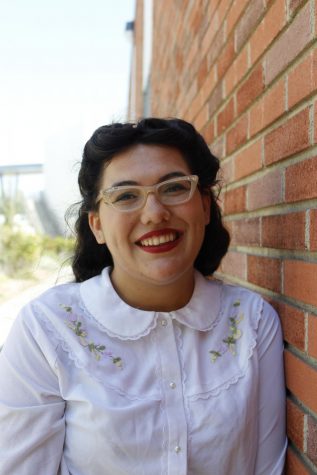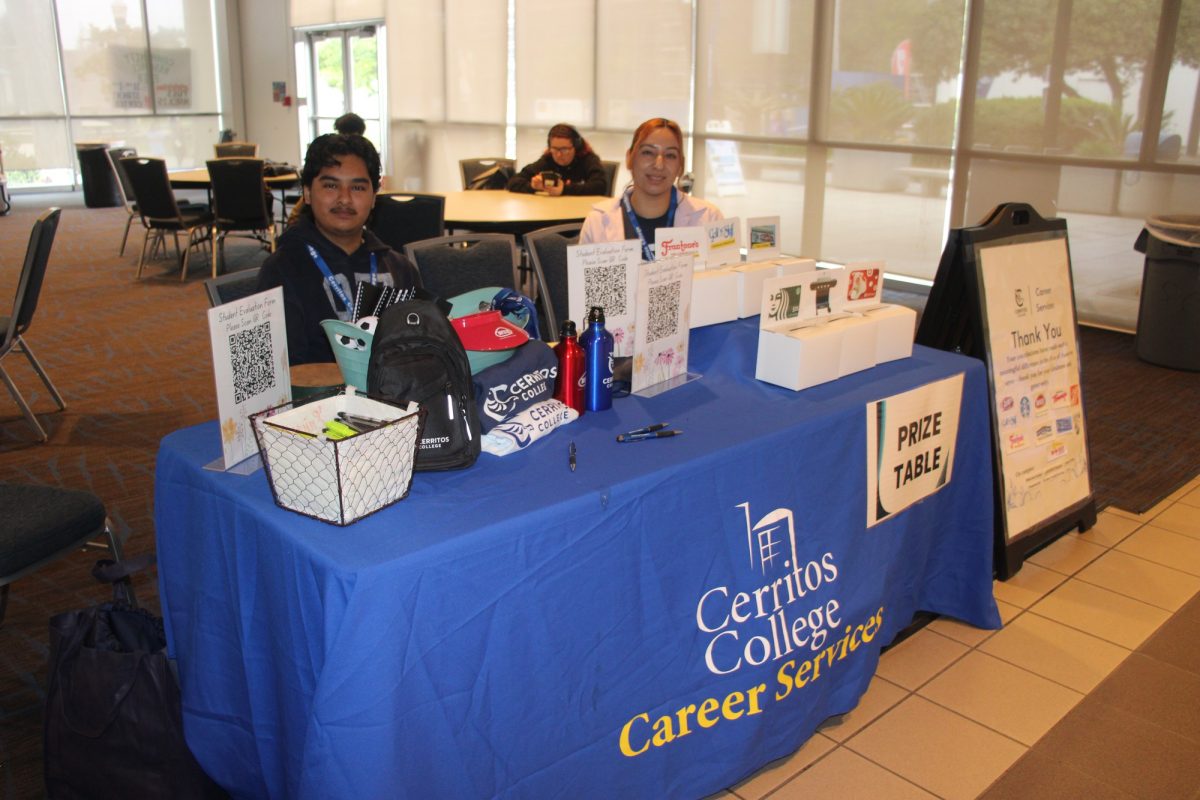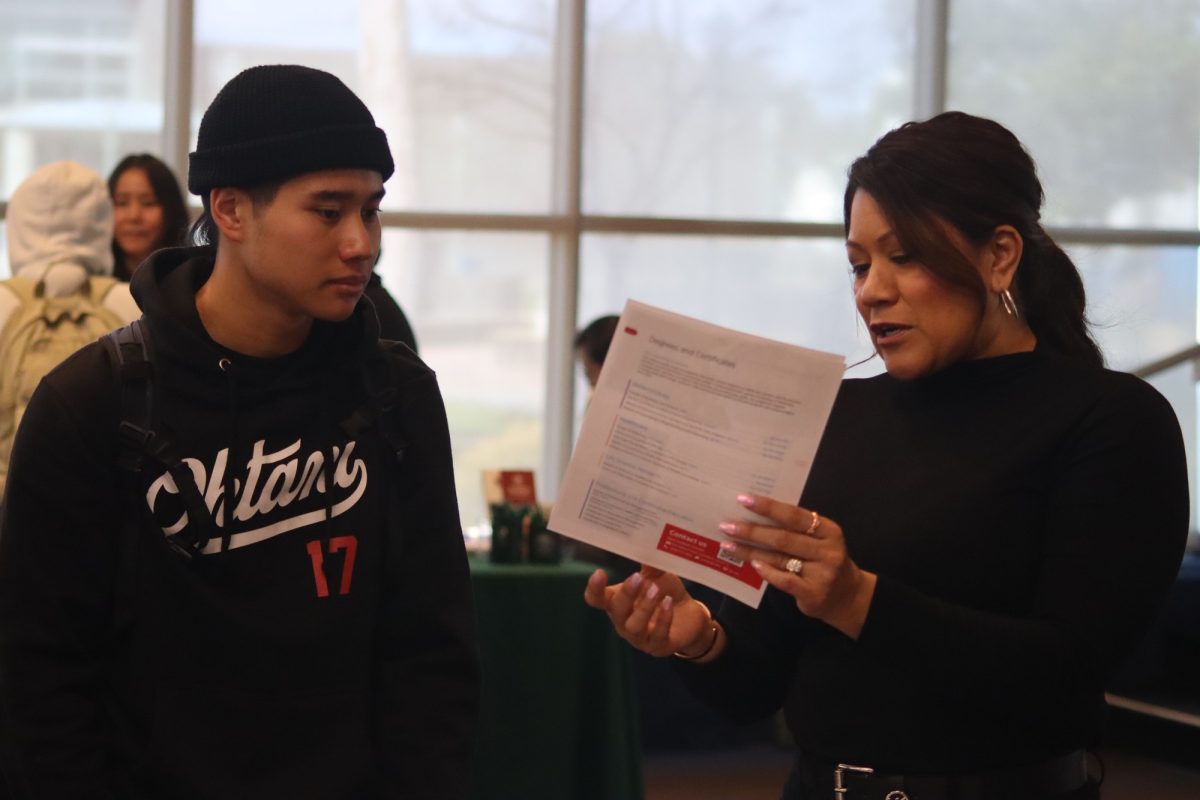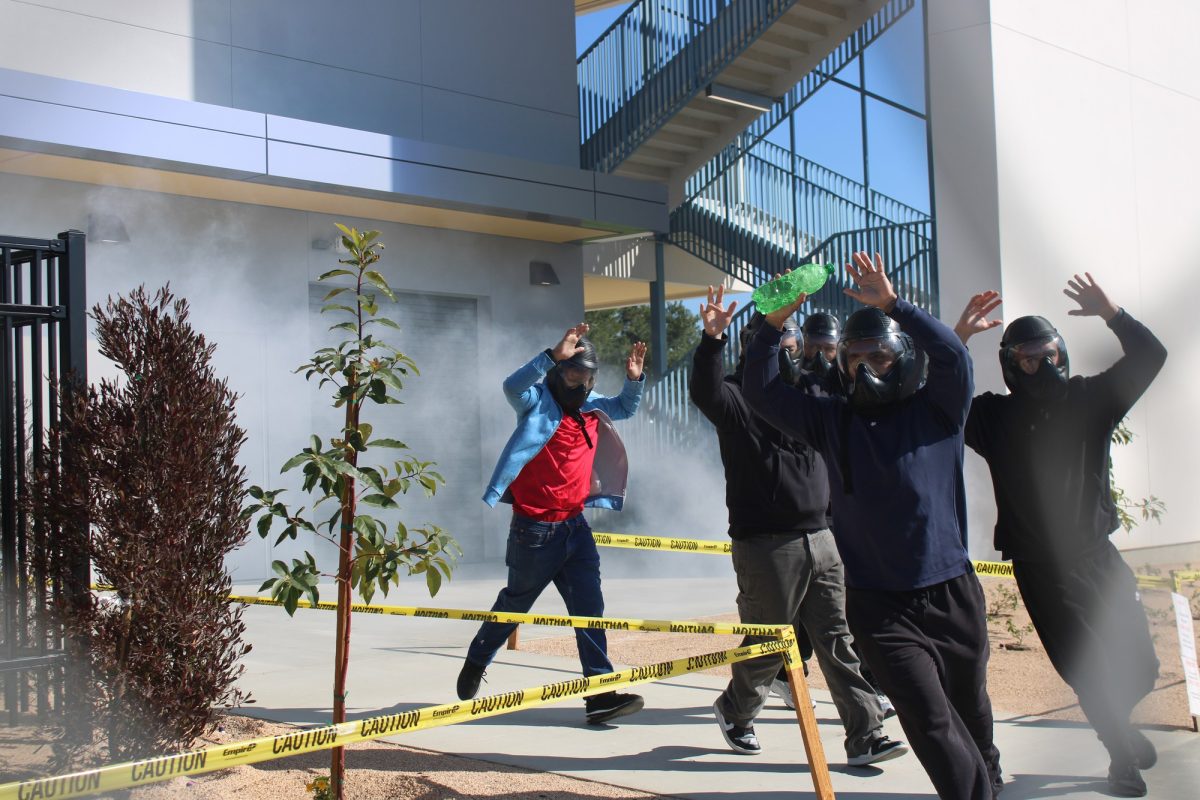It has been a year since administration justice major Kimberly Cuthbert has been experiencing shooting pain in her leg and extreme pain in her abdomen causing her to limp and double over.
Only until recently has Cuthbert been diagnosed with stage two endometriosis due to what she says is incompetence from her former primary healthcare provider.
Cuthbert said, “I guess you could say that everything started in November 2017 I noticed that when I would get up from sitting down, I would start limping but I really paid no attention, everything changed this January of 2018.”
It wasn’t until January when Cuthbert when to urgent care with “a simple sickness because I have bronchitis,” however, when she was seen Cuthbert said that inflammation was felt in “my lower, right quadrant.”
Due to curiosity, Cuthbert looked up which organs fell under the lower, right quadrant of the body, it was then that she discovered that the area where she was experiencing inflammation contained the ovaries, fallopian tubes and the appendix.
It was then Cuthbert, being scared about where the pain was occurring called her primary physician.
Cuthbert said, “he [primary physician] saw me on January 12, 2018 and he got mad and he said that he did not know urgent care chose not to the ultrasound, he did not understand as to why urgent care sent me back to him, they reason why I told him urgent care sent me back to him is because they couldn’t do anything else on that matter.”
From that point on, Cuthbert felt like a human pinball as she was pushed from nurse practitioner to doctor, without receiving any proper diagnosis or medical treatment.”
Throughout the the ten months that Cuthbert was attempting to receive medical attention, it was unbeknownst to her that she had a ruptured cyst, which was causing all the immense pain she was experiencing.
According to the site UpToDate, which is used by medical staff in the Health and Wellness Center, “Endometriosis is a condition where tissue, similar to the tissues that normally grows inside the uterus, also grows outside the uterus.”
Cuthbert says that her reports of pain went ignored and was told by physicians and a nurse practitioner that she was making up the severity of the pain she was experiencing.
It wasn’t until she was switched to her current doctor, that Cuthbert was diagnosed as having endometriosis, “If it hadn’t been for her, I don’t know where I’ll be. I think I’ll still be trying to figure out if I have endometriosis.”
Cuthbert thinks that her symptoms took this long to diagnose because “it’s the type of doctors that really just don’t care about the female experience, especially the male doctors, I feel like they don’t know what we women go through every single month, I mean, for me, I self-diagnosed myself, from the minute that I read the symptoms I knew that it was endometriosis.”
Cuthbert hopes that no other woman has to ever experience what she experienced with seeking diagnosis of her symptoms.
She states, “I even went to do the student activities because I want to raise awareness, I mean if I have to go up on stage and talk about my endometriosis, I’ll do it, this was a horrible experience for me, especially for like the past 10 months and just knowing that I’m going to have to live like this for the rest of my life,
“yeah it’s true that it should be something that should depress me but I choose not to get depressed over it because I need to raise awareness, I need to make sure that women could come to me and I could tell them, ‘hey, you know what? I’m going through what you’re going through,have no worries.”
Nurse practitioner Elika Roybal mentioned some of the services catering to feminine health offered at the Student Health and Wellness Center, “So we do provide another big thing is that all women, no matter if they’ve been sexually active or not, we do recommend according to American College of Obstetricians and Gynecologists guidelines which is what we go through for obstetrics and gynecology, that they get a pap-smear at 21 so that’s really important.”
Roybal shared her thoughts as to how certain health conditions pertaining to the female reproductive system may take some time to diagnose.
Roybal stated, ““When somebody presents with an abdominal pain, especially in a woman who is at risk for pregnancy, we always do multipitutive tests, the first thing we always we want to do is make sure that they are not pregnant or an emergency like an ectopic pregnancy or anything like that so there’s kind of a lot going on in this area already that could be causing discomfort
so we have to rule out could it be reproductive, could it be ovaries, is it their uterus like in endometriosis or is it their ovaries like in polycystic ovary syndrome,
“those are all different things and so usually when somebody comes in with abdominal pain we have to do several types of exams so sometimes that could take time in regards to endometriosis we have to get a very thorough history of menses, what their symptoms are, where they’re experiencing their symptoms, these have to get a very thorough history, and then kind of do different types of tests so I’m not really sure why it would have taken a whole year to be honest with you. Or they might be sent to a specialist or somebody who’s more familiar with it then they might get an earlier diagnosis but I’m not sure.”
Cuthbert stated, “I feel like male doctors need to have a uterus, ovaries and fallopian tubes just for one day that way they can see what women go through and I feel like they just don’t pay attention to the female experience and that’s when I questioned myself, ‘why did they take an oath?’
“Especially, obstetrics doctors, especially men, if you take an oath it’s because you are going to care for your patients not because you are going to ignore them for all I know I could have already been at stage four of endometriosis but because of the fact that I found a good doctor, doctor De Los Reyes, who I will always acknowledge.”
Judith Tercero, a criminal justice major living with polycystic ovarian syndrome shares a similar story with Cuthbert, as her accounts of immense pain were not initially believed by her primary doctor.
According to UpToDate, “Polycystic ovary syndrome is a condition that causes irregular menstrual periods because monthly ovulation is not occurring and levels of androgens (male hormones) in women are elevated.”
Tercero recounts her experience, “I started having my period at the age 11 and since then I had an irregular period, when I was getting older, it would last one month or sometimes 15 days so I went todo doctor and they gave me birth control pills and it helped a little bit, because it stopped and everything but as soon as I turned into my 20s it was getting more frequent with the pain so one of my mom’s friends told me, ‘go to your primary doctor to find out what you have,’
“so that’s what happened last year in summer 2017 and they [the doctor] told me, ‘oh you have cysts on both ovaries on both sides,’ and they told me, ‘you have PCOS,” and they [ the doctor] ignored like completely my pain for over a year so she [Cuthbert] came up and called my insurance.”
Tercero shares how her diagnosis has affected her, “It has affected me a lot because when I went to Long Beach endocrinology doctor, she told me, ‘in the future if you want to have kids stop drinking the birth control pills and have treatment with us to get pregnant’ so sometimes when I see a newborn I get depressed, I start crying.”
She copes with her diagnosis by “being stuck in my mind on what to do, like homework or hanging out with my friends.”










